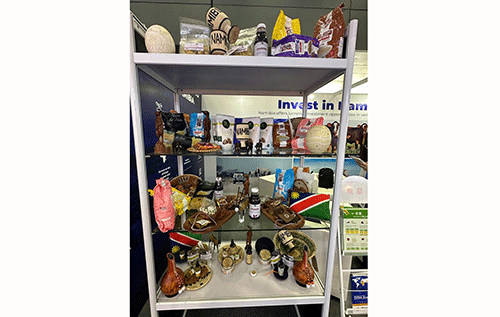CHANGSHA – South Africa’s ambassador to China, Siyabonga Cyprian Cwele, recently told New Era that the biggest trade hurdle within Africa is that some citizens do not have national documents in their countries. This, he said, can create doubt with countries which would want to engage in trade with each other.
Cwele noted that if this uncertainty is curbed, there would be easier movements of people and goods because there would be a general agreement on documentation. He thus stressed that capacity first needs to be increased to ensure that legitimate documents are in place.
“The first area of cooperation is to create national capacity to have a resilient national document, which cannot be fraudulently duplicated,” he stated on the sidelines of the just-ended China-Africa Economic and Trade Expo held in the Chinese city of Changsha.
The African Union (AU) has stated that despite the high number of stateless persons across the world, the challenge is particularly acute in Africa. This is because of the history of the creation and existence of borders, border populations, and migration within the continent.
The AU feels this challenge is further exacerbated by the weak capacity of many African states, and their inability or failure to respond appropriately to contemporary migration.
Cwele said for countries to increase exports, specifically value-added products from the continent, nations need to work together to increase production.
“Additionally, we need to find ways to reduce or remove the non-tariff barriers (NTBs) because we are friendly countries,” he emphasised.
He noted that the elimination of NTBs is critical to boosting intra-Africa trade and achieving the objectives of the African Continental Free Trade Area (AfCFTA). This will reduce the cost of trading across borders and ease the cross-border movement of goods, adding that the bulk of AfCFTA benefits will be realised if State Parties efficiently manage and eliminate NTBs.
In terms of bilateral trade, and with South Africa being one of China’s largest African trading partners, purely because of productive capacities, Cwele noted: “We can expand this productive capacity to our neighbours. We may prevent this influx of people who are looking for opportunities in South Africa, i.e economic migrants.”
“We need partners to industrialise Africa, and connect the trade between the African countries. This is going to happen, but we need trusted partners like China”, he added.
We are not beggars
Malawian president Lazarus Chakwera said over the years, the China-Africa economic trade expo alone has strengthened and increased economic and trade cooperation between the two regions, resulting in the implementation of numerous projects aiming for sustainable development.
“Most of us from Africa have gathered here with dignity, not as beggars, but as traders. So, our desire in our relationship with any country is to come as partners seeking our rightful stake in the prosperous future, and what partnerships like these will create for the world in the coming decades,” he observed.
Chakwera said the first painful reality which must be accepted is that no country in the world is coming to Africa’s aid. If the desire is, therefore, to build Africa as a global economic giant, “we must do so ourselves by building and making our things that we can trade and export first amongst ourselves, and also with other nations like China”.
“Even if other nations assist us, what we do and make with that assistance must be the value-added work of our own hands. This is why for us in Malawi, we are implementing a strategy for economic productivity in the sectors of agriculture, tourism and mining as well as enabling sectors of transport”, he continued.
In June 2023, China granted Malawi approval to export an unlimited quantity of agricultural products such as soybean, groundnuts and tobacco.
“When you look at trade statistics between Africa and China, it becomes apparent that a significant portion of African exports to China consists of raw commodities, including minerals and agricultural commodities,” Chakwera stated.
China’s exports to Africa are mostly value-added products and high-tech manufactured goods. He thus believes that China’s support to Africa must move towards value-added and manufactured exports which will make the China-Africa partnership stronger, and live up to its promise of shared prosperity.


